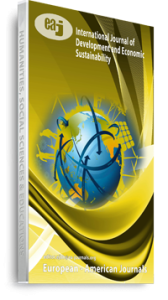This work is designed to empirically evaluate the determinants of the technical efficiency of ten privatized manufacturing firms in Nigeria. The firms were selected from the numerous firms in the four geo political zones to represent the interest of the entire country due to their age long establishment, size and government equity investment in them. The study adopted Data envelopment analysis (DEA) and ordinary least square regression as the techniques of analysis and the period of analysis is five years before and five years after privatization. The efficiency scores generated from the first stage using Data Envelopment Analysis (DEA) was used as dependent variables in the second stage against a set of explanatory variables. The investigation revealed that concentration ratio, size and age of firms were considered as determinant of technically efficiency. It also shows that, concentration ratio will lead to higher monopoly power, with age firms gain experience and with size, firms gain more strength to control or have a larger share of the market. It is recommended that there should be market competition with liberalization of entry conditions, in order to terminate monopoly and allow for new entrants to make operations competitive for production. This will be in line with the industrialization policy.
Keywords: Determinants, Nigeria, Privatized Manufacturing firms, Technical Efficiency

